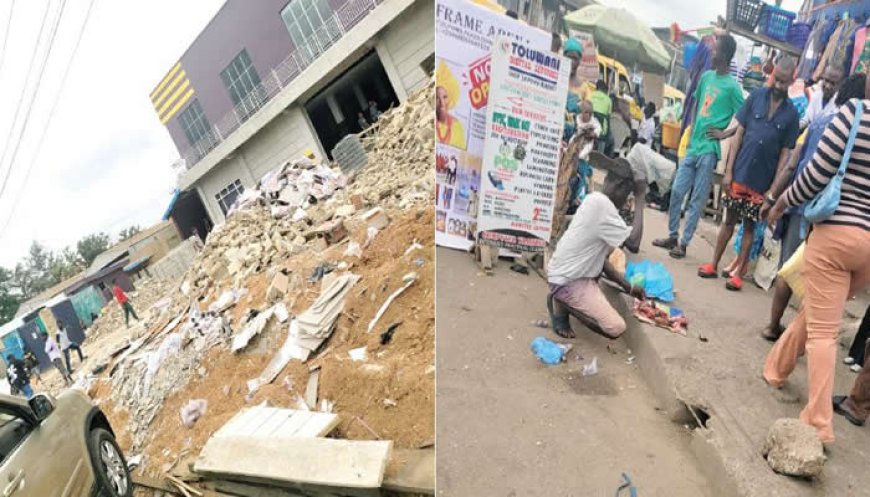Despite ban, children hustle at construction sites, dangerous Lagos streets to survive

Despite the official ban on child labour in Lagos, many children still toil at construction sites and engage in other perilous jobs in the shadows of the city’s dangerous streets just to support their families. SODIQ OJUROUNGBE, in this report, explores their daily fight for survival—heartbreaking stories of sacrifice and resilience amid harsh realities
Every day, a disturbing reality plays out in Lagos, a city where children aged between five and 17 are legally barred from working at construction sites.
As the morning sun streaks across the sky, the city’s skyline becomes dotted with the small, stooped figures of young labourers who navigate the hazards of construction sites every day, despite the protective legislation in place.
They are also found in shadowy streets and bustling markets.
Often no older than twelve, these children are not working out of choice but out of sheer necessity.
For them, the daily grind is not an act of rebellion but a sacrifice and desperate attempt to alleviate the crushing burden of poverty on their families.
In 2014, the Lagos State Building Control Agency banned minors from engaging in construction work, specifically targeting children aged between five and 17. Years earlier, in 2008, the state government outlawed street hawking by school-aged children, and by 2016, street trading was also banned.
The goal of these laws was clear: to particularly protect teenagers from the dangers of heavy machinery, unstable scaffolding, and toxic materials.
Yet the reality is far grimmer. The concrete jungles of Lagos still echo with the weary footsteps of underage workers, many of whom risk injury and endure long hours for a meagre wage that can only help to keep their families afloat.
A PUNCH Healthwise investigation found that for many of these children, violating the government’s child labour laws has become an act of survival—and, often, a profound act of love.
They load bricks, mix cement, and hawk goods in bustling traffic under the scorching sun, not for themselves but to ease the burdens carried by their struggling parents.
Among them is Azeez, a 14-year-old boy with quiet determination in his eyes. Each day, he rises at 5 a.m. to join his peers at a construction site near Ojodu-Berger.
With a tattered backpack slung over his shoulder and dust-caked sneakers, Azeez’s fragile frame labours for what he calls his daily ‘3k’— N3,000 (less than $2).
At the construction site, his small frame seems to disappear behind a mound of sandbags.

 admin
admin 


